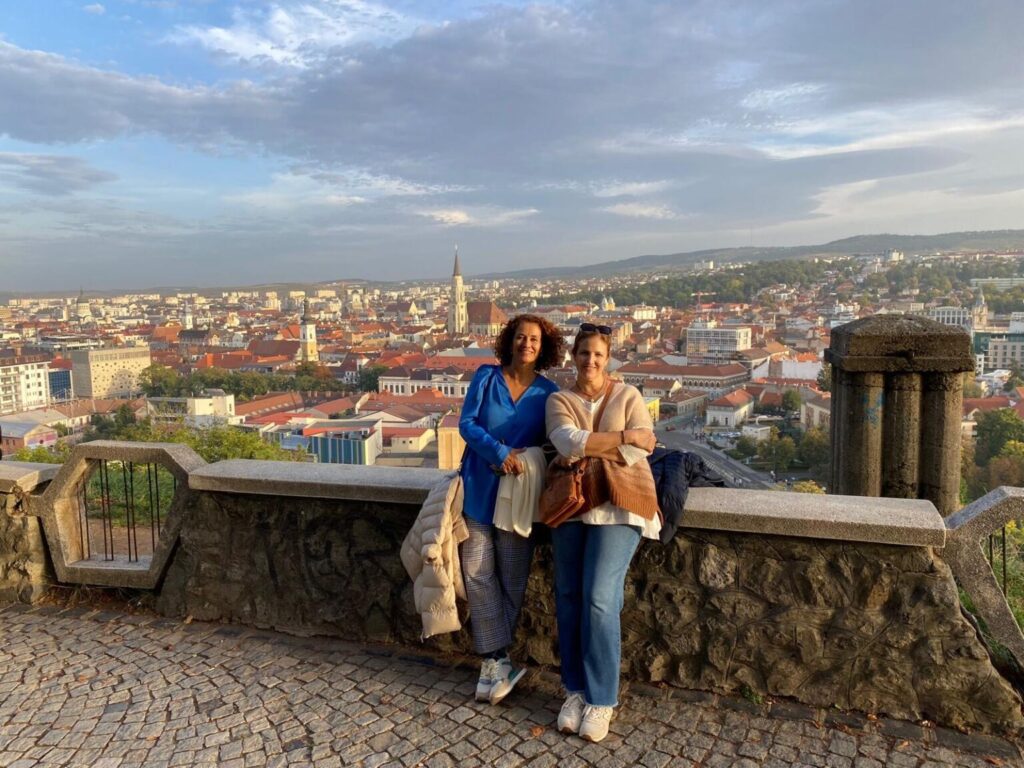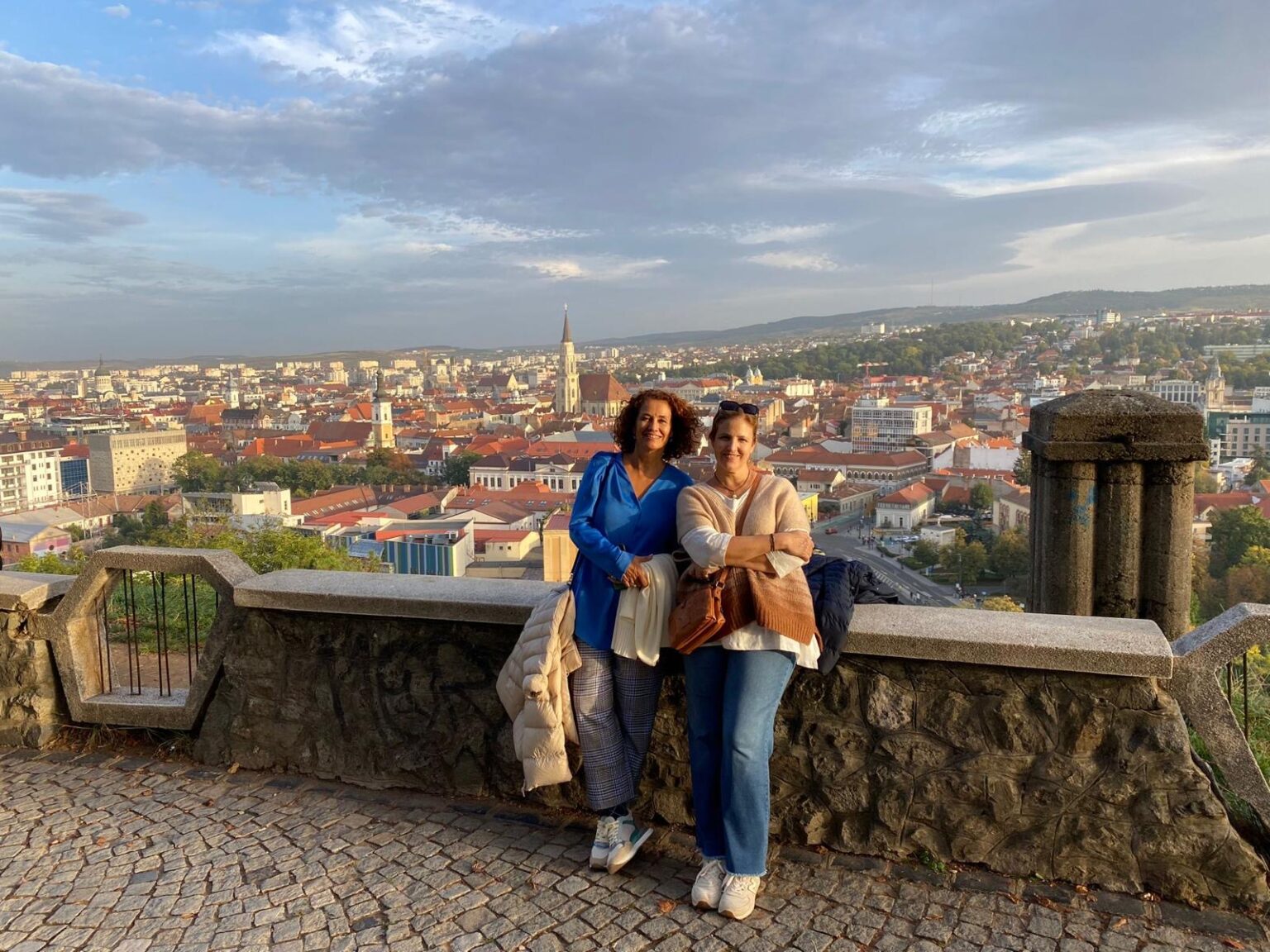

Rut Muñiz is professor of English for Specific Purposes at the Catholic University in Valencia, Spain, where she has been teaching for the past 21 years. Currently, she is very invested in her virtual exchange work that she undertakes with Maria Laura.
Maria Laura Angelini teaches at the same institution. She is also head of IGALA, the Interdisciplinary Group on Active Learning, and she coordinates the Secondary school teachers MA at the university.
You’ve just completed the 5th iteration of your VE entitled; ‘Simulation in the Master of Education in Secondary Teaching’. Tell us more about the background to this collaboration
“The idea of using virtual exchange in this Masters, explains Maria Laura, has been to give trainee teachers the opportunity to understand the education systems in other countries and meet other pre-service teachers to understand how they study. We consider this to be an added value for our students’ degree course.”
She continues: “We began humbly five years ago with only two or three universities as partners. Since that time, we have grown, and little by little, thanks to everyone’s efforts our project has become really big. This year, and this was a big highlight, we even visited Poland and Romania. It was really special to meet our colleagues. This effort of visiting has consolidated our results.”
What was so special about this year’s iteration of your VE?
Rut chimes in; “This year we had a new and special virtual exchange partner, she explains, ‘and this new university was Odessa in Ukraine. This has been a huge addition to our VE. We wanted to give those colleagues and students who are living through challenging times, a chance to have an intercultural place to join and share together.
“They really enjoyed this collaboration. I have to say that we all came together to help them feel supported. They shared with us that at times, they needed to attend the sessions from war shelters, and this really made us all think and appreciate the ease and comfort of our own lives.
“Up to now, all partners came from personal connections, but this one came about following a request I made to our internationalisation coordinator to help out. They put me in contact with colleagues at Odessa. But we weren’t sure they’d come on board as their specialty is science. We are more about education. I was so wrong as they couldn’t wait to jump aboard and successfully found students and teachers to participate. They did a fantastic job and I have to say this was very precious to us.”
“The impact on our VE participants was very strong, but also, when the students gained a real understanding of our neighbour’s situation, this too was very impactful and an invaluable experience. It made the other students really appreciate the ease of their lives.”
Maria Laura adds; “The conversation interestingly, was not around war. The students remained totally focused on the scenarios presented to them during this collaborative exchange. It was interesting that the war was not the focus at all. Of course, informally it came out in friendly conversations but it never detracted from the task at hand.”
Can you tell us more about the meaning of ‘simulation’ in the context of your VE?
“Simulation is transformative for students, explains Maria Laura. “It’s having the opportunity to analyse a complete scenario within the context of education. We do this through interviews with pre-service teachers who present different challenges each year. This means that each year we update the scenarios we give to them and the profile roles, so when we make the teams, we make mixed teams. In this way we guarantee the intercultural element within each of our exchanges.
“We coordinate ahead of time with the different facilitators at our collaborating universities, so when the simulation is delivered, everyone has had time to analyse the scenario and deliver their role in the best possible way. The role is aimed at giving the students a responsibility and new situation to try out during the sessions.
Perhaps they take on the role of a head teacher or a parent who is a teacher in a different school. All these perspectives provide valuable material for pre-service teachers. This is how dissonant elements are introduced and discussion ensues in how to resolve certain issues. This is a valuable learning experience during an international collaboration. They really need to think hard to come up with good solutions.”
What about the structure of your VE?
“We meet for four synchronous sessions, explains Maria Laura, ‘and we use the Moodle platform kindly provided by UNICollaboration.
“But the students are complaining that trying to fit everything into three weeks is too short. So, we will continue to improve and try to extend the virtual exchange. They ideally would like six synchronous meetings, but with the US also on board, this can be challenging time-wise. Plus, it’s hard to coordinate with so many universities with different availability. But we can work on this. Everyone makes a huge effort to attend regardless of the time differences as no one wants to miss anything.”
What about other highlights?
“Obviously including Ukraine was a big deal this year, says Rut, ‘but our VE grows year on year. This time we had 180 people working all at the same time. Fortunately, tech was not an issue this year! We are proud of our achievements. We began so small, and now look at us! I still collaborate with my colleague from Tunisia, and we are still working together after 5 years. We still have not met in person but we met during our training with UNICollaboration.
“The more people hear about our work, the more want to participate…this is very gratifying.
And we are releasing publications and research so it’s been very successful.”
UNICollaboration support
Maria Laura adds; “We are so grateful for all the support we are getting, ranging from UNICollaboration to all our teachers and students. Using technology to bring people together who otherwise may not have the chance to collaborate is wonderful and we are very grateful for the opportunity.
“We also want to highlight the importance of meeting personally – this is invaluable as we have designed European projects as a result of our meetings. Giving people the opportunity to connect around a single topic, which, in our case, is education, and offer different perspectives is the added value to what we do.
“We connect with common synergies and good things happen. This is why we continue working with UNICollaboration. We believe in the power of being together and sharing. The most important quality for teaching is flexibility and understanding how to adapt to different contexts and situations and learn from others.
We want to be ‘contagious’ with this idea and so far, it’s been successful. Everyone is grateful, especially the students who want to repeat the experience. And we were delighted to actually meet one of our participants when we visited Romania earlier this year!”
Rut is eager to add; “Algeria joined us too, this year, at the very last minute and we welcomed them on board as well as Tunisia. These perspectives were fantastic with all the different backgrounds that ensured the intercultural aspect was there at all times. It was something really special this year.”
“A special thanks to UNICollaboration for the ongoing support. You are always there to help us and we really appreciate that.”
